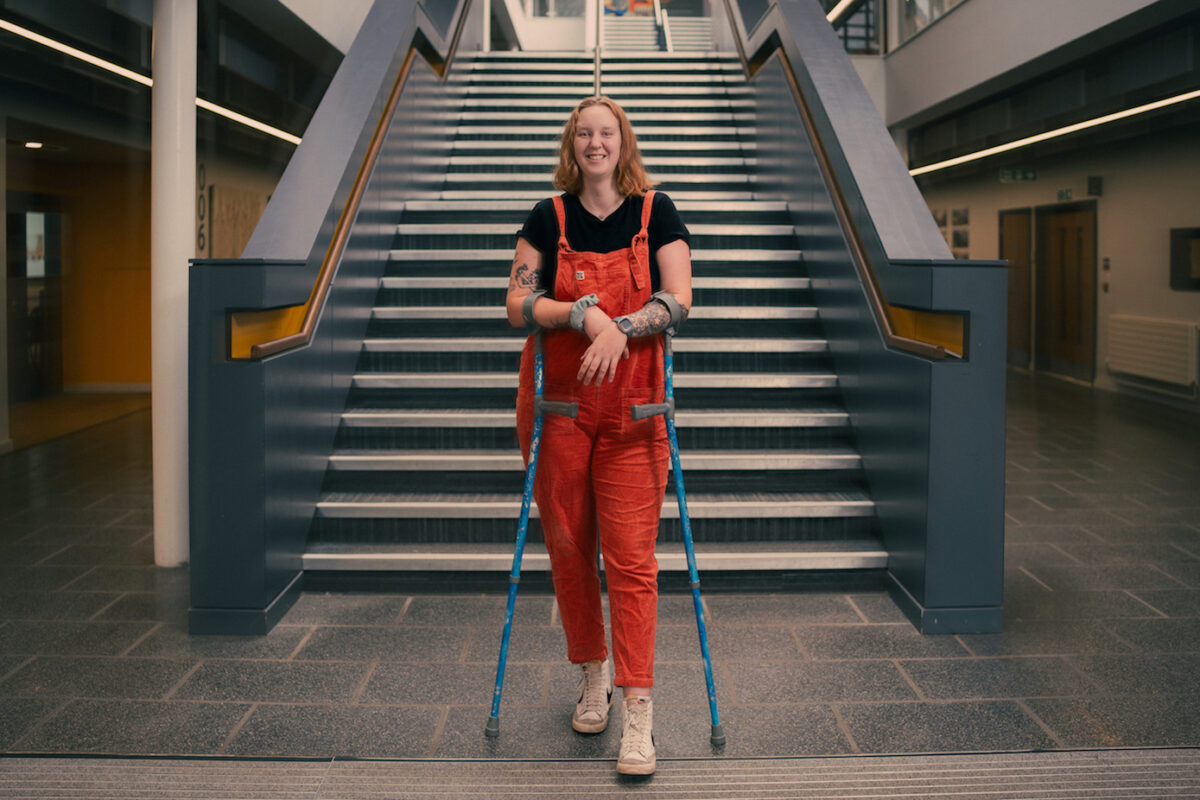Amid the cost of living crisis, the University of York has launched a plan to address the financial and educational inequalities students face
Huddled over the books and notes on her bed, Milda looked like any teenager studying for her A-Levels. But she wasn’t revising in her cosy bedroom in a family home. Her bed was an air mattress on the floor, and she was living alone.
Milda spent time in foster care and began living independently in her teens. She didn’t have things that so many of us take for granted, like a secure home to go to when school finishes, or a parent to ask for advice on university and employment. Sometimes, she wondered if she’d even be able to go to university. What was she meant to do over the long holidays?
“Other students have the fallback of going home over the summer or having a home to go to if something goes wrong,” she says.
Research last year by thinktank Civitas found that just 14% of young care leavers in the UK went to university, compared to 47% of people who didn’t grow up in care. But Milda’s dream of studying mental health was made possible by the University of York’s University of Opportunity fund, which offers varying amounts to students needing extra support.
The University of Opportunity is funded through donations from alumni and friends of the university. The fund aims to provide holistic support and has the flexibility to help students when and where they need it most. Milda received the £9,000 care leaver’s bursary. Help is also available for students from low-income and underrepresented backgrounds.
“I don’t think I’d have been able to finish at any other university with everything I’ve been through,” says Milda. The support enabled her to complete undergraduate and master’s degrees, and she’s now doing a second master’s in mental health research.

Thanks to a scholarship, Beulah (pictured) was able to focus on her passion for medieval studies and take on a master’s without the stress of working multiple jobs. Image: Beulah, University of York/Alex Holland
Young people from low-income backgrounds and those with disabilities can also fall through the gaps when it comes to university funding. University is as much about the experience as it is the education, but the costs of joining clubs and societies all add up. While student loans and grants cover tuition fees and some living expenses, they are far from the only associated costs. Food, socialising, study materials and extracurricular activities may all be out of reach for people who lack family members who are able to help them financially.
“It’s hard when you don’t quite feel like you fit in,” reflects Beulah, who grew up in a working-class area in south-east England. “Coming from a state school, I often felt out of place among other students, who were mostly from middle-class, privately educated backgrounds.”
But York’s support made a big difference. Thanks to a scholarship, Beulah was able to focus on her passion for medieval studies and take on a master’s without the stress of working multiple jobs.
I don’t think I’d have been able to finish at any other university with everything I’ve been through
Another student, who grew up in a low-income household and who wishes to remain anonymous, worried that because she was unable to pay for society memberships, she’d miss out on social opportunities and end up feeling an outsider. But with the help of its activities access grant, she joined the University of York’s boat club. “I wouldn’t have considered it without the support of the university,” she says. “It’s perceived as exclusive and expensive. But I’ve become really involved and met so many amazing people.”
Something else that many might take for granted is the ability to get a part-time job to fit around their studies, or to be able to do unpaid internships. Not only is money a barrier, but health, too. Ira has a disability that means they often have weeks of excruciating leg pain and fatigue. The free time that Ira has around studies is vital for rest, and while having a job may have enabled them to save up to support themselves through unpaid opportunities, it could also have made them too ill to do anything at all.
“For me, that extra 10 hours a week doing work to be able to afford to do unpaid opportunities would have made [those opportunities] impossible to take,” says Ira. “I wouldn’t have been able to have the time, energy or health to do both.”

The University of York’s University of Opportunity fund offers varying amounts to students needing extra support. Image: University of York Central Hall at dusk, University of York/Alex Holland
The University of York’s own data shows that graduate outcomes for disabled people are the least positive of any group 15 months after graduation. It is working hard to change that. That’s why financial support for those who, like Ira, are unable to juggle work, study and interning for health reasons, is so important in levelling the playing field. Ira was able to take an unpaid internship in forensic psychology thanks to the scholarship. “I couldn’t have done it without the scholarship,” they say. “It was so rich in experience. It 100% changed my opportunities and inspired my next steps.”
It also took away the pressure to get a job – any job – just to make ends meet. “Work was something I did for the experience, and not just to survive,” says Ira.
Their experience resonates with Izzy, who was a carer for her unwell father before he died. She didn’t know how she would apply for university without a parent’s guidance, let alone afford to be there. “I couldn’t have afforded to be a student anywhere else,” she explains.
She received the estranged student bursary, which is set up for people without parents or guardians, or for people who aren’t in contact with their families. “The support was life-changing,” she says. “It meant I could have a normal first-year experience. I knew that if I was going to university, it could only ever be York.”
Main image: Milda at the University of York by University of York/Alex Holland
Find out more about York’s University of Opportunity Fund at https://www.york.ac.uk/university-of-opportunity
Be part of the solution
Positive News is helping more people than ever to get a balanced and uplifting view of the world. While doom and gloom dominates other news outlets, our solutions journalism exists to support your wellbeing and empower you to make a difference towards a better future.
But our reporting has a cost and, as an independent, not-for-profit media organisation, we rely on the financial backing of our readers. If you value what we do and can afford to, please get behind our team with a regular or one-off contribution.
Give once from just £1, or join 1,500+ others who contribute an average of £3 or more per month. You’ll be directly funding the production and sharing of our stories – helping our solutions journalism to benefit many more people.
Join our community today, and together, we’ll change the news for good.

